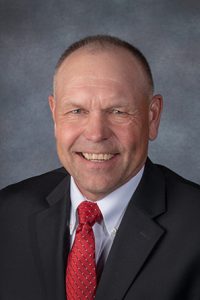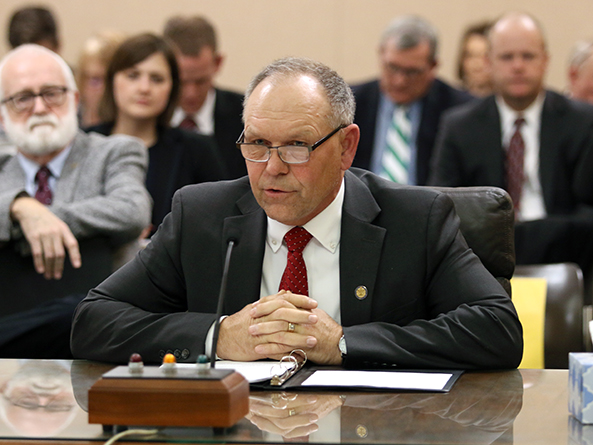Data collection program proposed to improve broadband availability
The Transportation and Telecommunications Committee heard testimony on a bill Feb. 3 that would help Nebraska obtain federal funding for increased broadband availability.

LB996, sponsored by Plymouth Sen. Tom Brandt, would allow Nebraska to create a statewide crowdsourcing program to collect broadband availability data to supplement federal data that already is collected.
The current data collection form employed by the Federal Communications Commission grossly overstates the availability of broadband in Nebraska, Brandt said, but the agency is committed to getting more accurate data and asking states for help in that effort.
“The FCC is allocating $20.4 billion to help states build out fiber in rural America,” he said. “If we pass [LB996], we would be one of the first states to receive that funding.”
The bill would prioritize resources and outreach in areas of the state that crowdsourcing, public feedback and other evidence suggests are unserved or underserved by high-speed internet.
John Hladik, policy program director for the Center for Rural Affairs, testified in support of the bill. LB996 is written to ensure that Nebraska is in a position to maximize its share of the federal funding, he said.
“These unserved and underserved households will be discovered through a combination of improved data from internet service providers and the results of crowdsourcing at the state level,” Hladik said. “The states that identify [these] homes through crowdsourcing will be eligible for a greater share of [federal] funds.”
Public Service Commissioner Mary Ridder also supported LB996. She said it would enable the commission to supplement efforts by the FCC to gather more accurate data.
“There’s no question that our annual broadband map overstates broadband coverage and that it’s become a national goal to fix it,” Ridder said. “Better data and better maps are an integral part of making good policy decisions which will effectively target broadband deployment and support.”
Representing AARP Nebraska, Danny DeLong supported the bill’s goal of assisting communities on the wrong side of the “digital divide.”
“These communities find themselves left out of the information economy because broadband providers have not found it profitable to serve them,” DeLong said. “We should continue to focus on policies and programs that give [Nebraskans], especially older ones, the digital literacy tools and comfort to adopt highspeed internet in their homes.”
No one testified in opposition to the bill and the committee took no immediate action on it.


